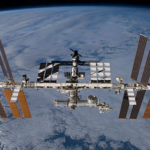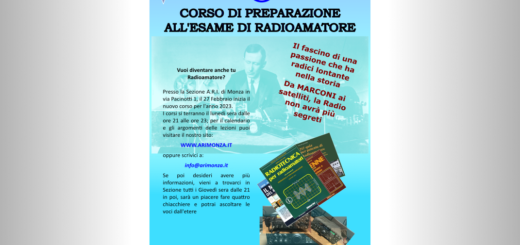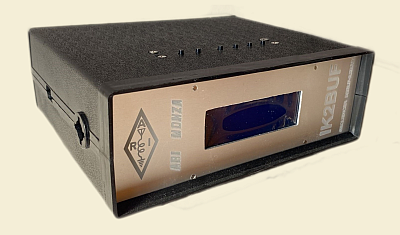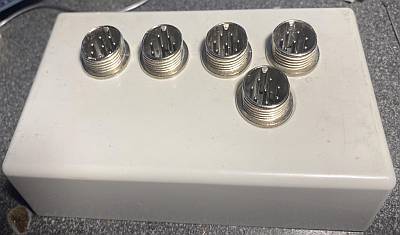10 luglio 2020 (multi-point Telebridge)
 ARISS Multi-point Telebridge Contact with school in Belgium
ARISS Multi-point Telebridge Contact with school in Belgium
An ARISS educational school contact is planned for Chris Cassidy KF5KDR with students at Don Bosco Haacht Technisch en Beroepsonderwijs, Haacht, Belgium
The students will be talking with the ISS from their homes over the Internet.
The link to the ISS will be operated by the amateur radio ground station AB1OC.
The contact is scheduled on Fri 2020-07-10 10:49:51 Friday July 10, 2020 at approximately 19.49 UTC, which is 21.49 CEST.
Downlink signals will not be audible over Europe
The event will be broadcast on YouTube : https://youtu.be/zj6gkCtKAwg
School Information:
Don Bosco Haacht is a Catholic secondary school founded by the Salesians of Don Bosco, which is attended by approximately 2,200 pupils on a daily base. The school is located 15km NE of Brussels in Belgium The school is situated in a green environment offering ample space for practising sports and relaxation. The school consists out of 7 buildings used for teaching, administration, laboratories for sciences and work floors to practice the vocational subjects. The catchment area is not only local, but also serves the needs of the triangle Brussels, Louvain and Malines, from which cities most pupils join the school by public transport. The pupils living in the surrounding areas usually come to school by bike or on foot.
Our school, founded in 1961, offers a wide spectrum of education areas working to academic, technical and vocational qualifications. Pupils are also given the opportunity to be involved in (international) extracurricular activities such as sports competitions (Uppingham, Salesian games), STEM projects and an exchange project with an Indian sister school in Pondicherry.
The pedagogical idea of Don Bosco offers a wide range of activities at lunch break such as sporting facilities, playing music, playing board games wherein the involvement of the teacher, being close to the pupils, is very important.
Students First Names & Questions:
1. Siebe(19): How can you tell time? Does day and night exist in the space station? 2. Denis(20): What are the difficulties in space in putting clothes on? 3. Kwinten(16): Why would you go outside the ISS? How many of you can leave at the same time? 4. Dries(18): What anthropogenic influences or manmade structures on earth can you observe from space? 5. Renske(17): Are you allowed to go back to earth immediately in case of a family related emergency? 6. Janna(17): Is it possible to drink sparkling water on board of the ISS? 7. Hanne(16): What kind of experiments do you do in space and do they sometimes include animals? 8. Paul(18): Why would the ISS change its course and how fast can it do that? 9. Antoine(18): Have you ever had any problems with oxygen, pressure or fire on board and how can you solve such problems? 10. Karel(18): What do you do when you have free time? 11. Lander(16): How did you feel when you took off? 12. Siebe(19): How do the quality and duration of your sleep in the ISS differ from what you are used to on Earth? 13. Denis(20): Are you continuously being monitored when you are in the ISS? 14. Kwinten(16): Do you think extraterrestrial organisms exist? 15. Dries(18): Is SpaceX changing the way of life in the ISS? 16. Renske(17): For how long can you stay in the ISS? 17. Janna(17): Does the air in the ISS feel humid or warm? Has it any odor to it? 18. Hanne(16): What personal belongings do you bring with you to the ISS? 19. Paul(18): Can you see other satellites orbiting the earth? 20. Antoine(18): What do you do with laundry and trash on board of the ISS?
AboutARISS:
Amateur Radio on the International Space Station (ARISS) is a cooperative venture of international amateur radio societies and the space agencies that support the International Space Station (ISS). In the United States, sponsors are the Radio Amateur Satellite Corporation(AMSAT), the American Radio Relay League (ARRL), the ISS National, National Aeronautics and Space Administration (NASA).
The primary goal of ARISS is to promote exploration of science, technology, engineering, the arts and mathematics by organizing scheduled contacts via amateur radio between crew members aboard the ISS and students. Before and during these radio contacts, students, educators, parents, and communities learn about space, space technologies, and amateur radio. For more information, see www.ariss.org.






